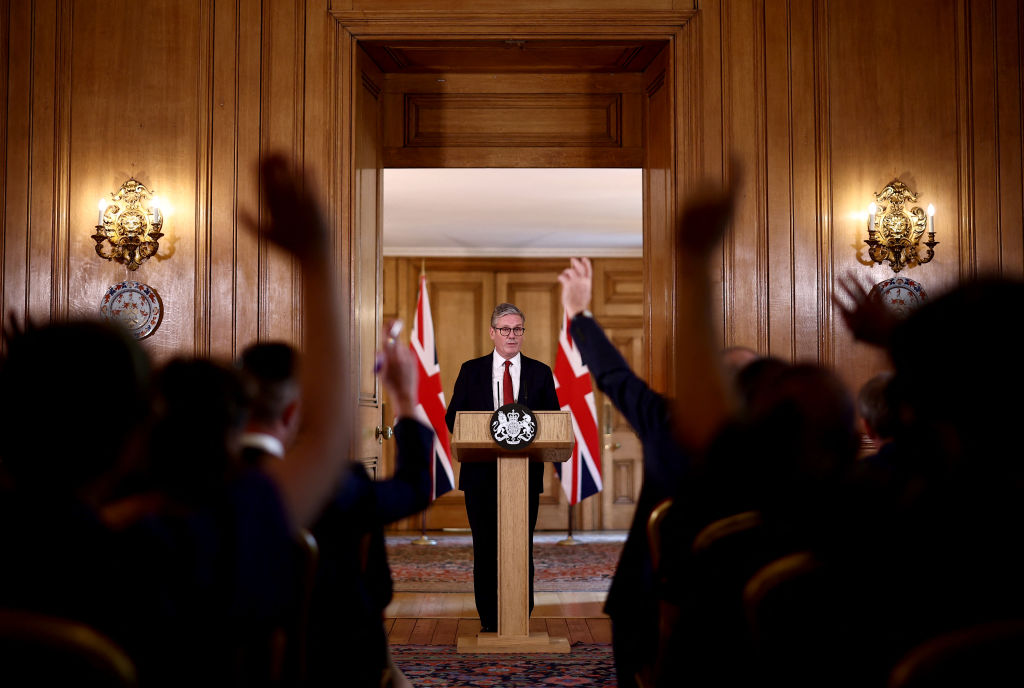It was a moment that will remain etched in British minds. Finance minister Rachel Reeves became tearful in front of the entire nation on Wednesday, almost exactly a year after Labour took office with a huge majority in parliament. The episode came as the government was forced to U-Turn on cutting welfare benefits for millions of disabled people, after a rebellion from MPs that has raised questions over how long Reeves or even Prime Minister Keir Starmer might last in their posts.
[time-brightcove not-tgx=”true”]
The wreckage lays bare a paradox that has beset Labour since it came to power. Its orientation is unfailingly orthodox and conservative, defined by “fiscal restraint” and the defense of established institutions. Yet in a country that needs renewal rather than retrenchment, this kind of politics tends to generate perpetual crises—which have, in turn, caused the party to make a series of shambolic climbdowns that have eroded its credibility.
It would be a stretch to say that Labour has deflated popular expectations. The party owed much of its election on July 4, 2024 to widespread anger at the Conservatives, who had governed for a 14-year period marked by austerity, a chaotic Brexit, perpetual scandals, and an infamous run on bond markets when one of the party’s Prime Ministers, Liz Truss, tried to implement unfunded tax cuts for the superrich. (The Daily Star began a livestream to see whether Truss or a head of lettuce would have a longer shelf life; the lettuce won.)
Labour took office with 64% of seats in parliament despite a modest 34% of the vote. Turnout was at a historic low, with some calling Starmer’s victory a “loveless landslide” or a “majority without a mandate.” The party had not sought to distinguish itself from the Conservatives on the basis of ideology: both agreed on the necessity to rein in state spending, the primacy of the special relationship with Washington, and the need to cut migration. The dividing line was the issue of good governance, with Sir Keir—a decorated lawyer who once ran the country’s Crown Prosecution Service—pledging to be a more capable manager.
But the promise of fiscal discipline has become a straightjacket. Reeves has long ruled out tax rises, leaving the government in constant crisis over budgets. Its solution has been to maintain harsh measures like the Tory two-child welfare benefit cap. It has removed subsidies that help pensioners to stay warm during winter, sparking such public anger that Starmer vowed to restore them. Its attempt to force sick and disabled people into work by reducing benefits is just the latest backlash stemming from these self-imposed spending restrictions.
The Labour government’s pitch has long been that it can restart growth to better fund the state. It has gone about this by proving its “credibility” with the markets and deregulating key sectors. Financiers are being encouraged to engage in more “risk-taking” and asset management firms are being incentivized to buy up more of Britain’s crumbling infrastructure in ways that will put rich investors first.
This is a trickle-down agenda for the 2020s, based on giving big business everything it wants in the hope that the rest of the population may someday share in the wealth. The former head of Amazon U.K. has been put in charge of regulating private monopolies. The onetime CEO of Microsoft U.K. chairs the government’s industrial strategy council. Executives from BlackRock have been granted extraordinary access to key ministers. But GDP growth remains slow and public services are still under enormous pressure. Diagnoses of Britain as a “failed state” are increasingly common.
Naturally, Britons are on the lookout for an alternative. One may be a potential new left-wing electoral vehicle launched by the former Labour Party leader Jeremy Corbyn and others. But for many today, the closest thing on offer is the beaming, cigar-puffing demagogue Nigel Farage, leader of the far right Reform party, whose unimaginative promise to “Make Britain Great Again” and freeze immigration has gained ever more traction as the Labour government flounders. Although Reform won just five of 650 seats in the 2024 election, it triumphed in local elections in May. Recent polling put its support at 34%, and there is growing talk that Farage could become the next Prime Minister. Its surge has coincided with a series of riots across England and Northern Ireland, in which racists attacked asylum seekers and set fire to their accommodation.
Rather than working out a consistent line to counter Farage, Starmer has often equivocated. First his government broadcast lurid videos of migrants being deported and pledged tough new restrictions to prevent Britain from becoming an “island of strangers”—echoing the words of the infamous Enoch Powell in his “Rivers of Blood” speech. Starmer would later apologize, saying that neither he nor his speechwriters were aware it resembled Powell’s remarks.
It was yet another example of Labour’s dynamic of prevarication and self-sabotage: failing to win over Reform voters while alienating many of his own supporters. Senior party figures are now reportedly suggesting that Starmer could be forced out within months. The lesson is that, in today’s Britain, the refusal to pursue meaningful change leads to perpetual turbulence and instability. Unless Starmer finds a way to avoid the latter, his political survival cannot be assured.

